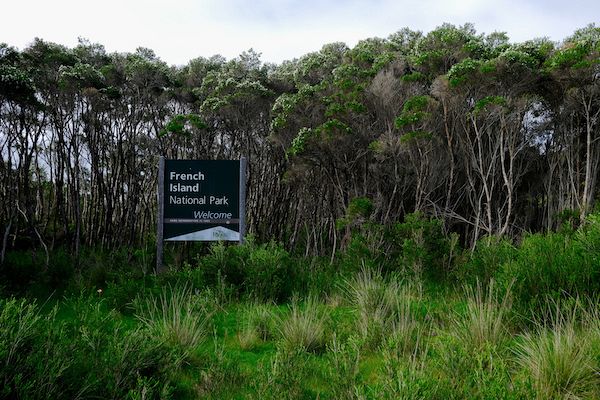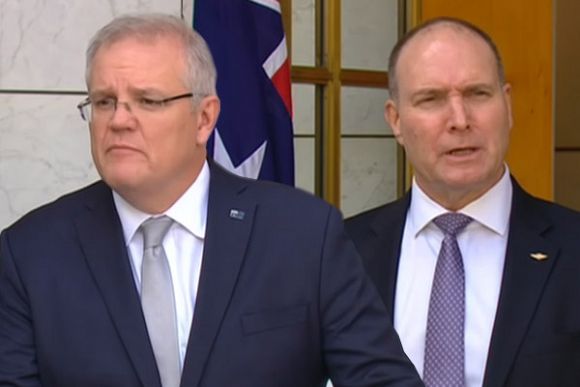AGL Energy’s proposed gas import terminal – to be built atop protected wetlands in Western Port Bay – has been rejected by the community, environmental advocacy groups and even local government, but will this stop the project going ahead? John Thompson reports.
“If they were really listening, they’d be gone.”
~ Louise Page, Save Westernport
Wayne Moncrief runs a local fishing charter in Western Port Bay, Southern Victoria. Laden with city-faring hobby fisherman, he and his boat can be seen out most weekends. They all attest to the pristine water and proudly show off photos of past catches. Holding the pictures on their phones aloft like trophies.
“Western Port used to be a ghost town,” said Moncrief, who has been fishing the bay for 42 years.“You used to come out here and there’d be six boats and you’d think ‘Geez it’s busy’, Now you see 200 and think, ‘it’s not too bad’.”
Later this month AGL Energy’s Environmental Effects Statement, submitted to the Department of Environment, Land, Water and Planning, will close for public comment. It is one of the final steps AGL has taken to approve the construction of a controversial gas import terminal in Crib Point, just a few short kilometres from French and Phillip Island.
Moncrief says:
“I’m against it. Rveryone’s against it. Look there’s heaps of positives for them, heaps. I don’t blame them for wanting it in. But it’s not good for us. It’ll destroy our little community.”
AGL’s proposed Floating Storage Re-gasification Unit (FSRU) will measure up to three football fields in length. Similar units suck millions of litres of water out of the ocean, only to pump it back in — chlorinated and five degrees cooler. Thanks to a sustained campaign by local community advocacy groups and environmental organisations, AGL altered the design of the FSRU, eliminating this particular concern.
“They tried to go without the Environmental Effects Statement process,” said Rai Miralles, who co-authored a report on the terminal on behalf of Environment Victoria. “They wanted to pretty much go under the table”.
The Environmental Effects Survey (EES) – funded by the applicant, (AGL) and overseen by the Minister of Planning, is meant to assess the environmental impact of a given project.
Miralles says:
“We have doubts about whether this process is strict enough. When it comes to the Ramsar wetlands you do have commitments, but they’re voluntary commitments”.
The Ramsar Convention is an international treaty that seeks to identify and preserve wetlands of international importance. Australia currently lists 66 of its wetlands under these guidelines. Western Port’s is one of them.
AGL has held innumerable community information sessions since the project was first devised. Briefing residents on the FSRU and, ostensibly, addressing their concerns. It was only after one of the very first sessions that disgruntled residents banded together and formed the Save Western Port group — an advocacy group that has campaigned to scrap the project ever since.
Louise Page, one of Save Western Port’s most active members, said:
“They give the appearance of listening and they certainly do. But it seems like they’re listening to work out how to get it through, rather than what the communities say. If they really were listening, they’d be gone”.
Western Port is no stranger to industrialisation, the remains of the BP oil refinery has been an old friend since the '70s, it’s reliable — now rusted tanks, rotting on "toxic land". Closed since 1985, it was the last major industrial project to operate in the area. But not for lack of trying. Community groups like Save Westernport have for years fought off proposals for projects such as a mine, a supertanker, a bitumen plant, a container port and even a nuclear powerplant.
Liberal MP for Hastings, Neale Burgess has also condemned the project, stating in a press release:
'The potential consequences of a decision to locate this toxic industry at Crib Point, are too great to allow such an important part of the process to proceed at a time when our community is in the middle of dealing with a worldwide virus pandemic.'
It was Burgess’ criticism, among others, that forced AGL to alter the EES process. What was to be a one-week window during which the survey was open for public comment has now been extended and an online portal was made available so that residents – home-bound due to COVID-19 restrictions – can still have their voices heard.
Burgess said:
“I don’t believe this project should ever have been considered for Crib Point, as it will just serve to, once again, encourage thinking of this beautiful area as a potential location for toxic industrial development.”
Karen Garraway owner of the Crib Point General Store has been a resident of the Bay her whole life and knows first-hand the risk of industrialisation.
Garraway said:
Nine of us used to come down in an FC Holden with my uncle and the dog and the cat, and all the fishing stuff. But it’s taken so long for Western Port to get back to where it is.
As young teenagers – and I’m talking mid-'60s – you used to catch King George and you could see them swimming. That’s how clear the water was. But even now, I don’t think you’d ever see that water that clear again, around there, off those rocks. Exactly where they want to bring in those ships.
AGL was contacted for comment but no response had been received at the time of publishing.
John Thompson is a student journalist and independent photographer.
Related Articles
- Getting away with it: Gas companies not paying their fair share
- IA #4 top story of 2016: Queensland's collapsing LNG industry
- Queensland's collapsing LNG industry
 This work is licensed under a Creative Commons Attribution-NonCommercial-NoDerivs 3.0 Australia License
This work is licensed under a Creative Commons Attribution-NonCommercial-NoDerivs 3.0 Australia License
Support independent journalism Subscribe to IA.














